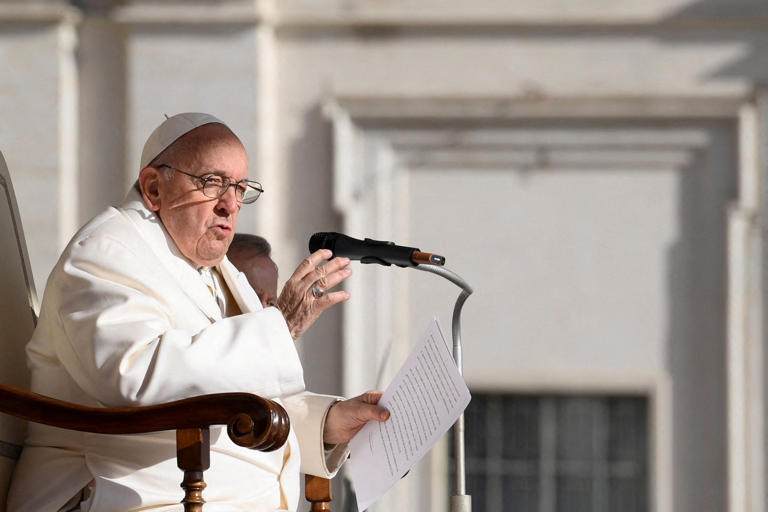Pope Francis has died at the age of 88, the Vatican announced, bringing to a close a 12-year papacy that left a lasting mark on the Catholic Church and the world. Elected in March 2013 following the historic resignation of Pope Benedict XVI, Francis was widely regarded as a reformer with a deep commitment to humility, compassion, and social justice.
Pope Francis had recently been released from Rome’s Gemelli Hospital, where he had been admitted on February 14 due to breathing difficulties. Doctors later confirmed he was suffering from a complex respiratory infection and double pneumonia, both of which severely impacted his lungs. Despite his condition, Francis made a public appearance on Easter Sunday in St. Peter’s Square and met U.S. Vice President JD Vance the day before his death.
Jorge Mario Bergoglio, the man who would become Pope Francis, was born on December 17, 1936, in Buenos Aires, Argentina, to Italian immigrant parents. Before entering the priesthood, he studied chemistry and led a vibrant youth, enjoying dancing, dating, and even working as a nightclub bouncer. In a 2010 biography, he spoke fondly of his love for tango, which he used to dance with friends before feeling a religious calling.
He joined the Society of Jesus and was appointed head of the Jesuits in Argentina in 1973 at the age of 36. His experience during Argentina’s Dirty War deeply shaped his views, softening his conservatism and guiding him toward a more compassionate approach to leadership. He became Archbishop of Buenos Aires in 1998 and was made a cardinal by Pope John Paul II in 2001.
Pope Francis From Buenos Aires to the Vatican
During the 2005 conclave to replace John Paul II, Pope Francis was seen as a serious candidate, reportedly receiving dozens of votes before Cardinal Joseph Ratzinger was elected as Benedict XVI. When Benedict stepped down in 2013, Bergoglio was chosen to succeed him, becoming the first Jesuit pope, the first from the Americas, and the first non-European pontiff in over a millennium.

Upon his election, he took the name Francis, inspired by Saint Francis of Assisi. He said the name came to him after Cardinal Claudio Hummes embraced him and whispered, “Don’t forget the poor,” a message that would shape his papacy.
From the beginning, Francis was known for his humility and simplicity. He rejected the grand papal apartments, choosing to live in the modest Casa Santa Marta guesthouse. He wore plain black shoes instead of the traditional red ones and often referred to himself simply as the Bishop of Rome. He also famously returned to the Church-run residence where he stayed during the conclave to pay his bill in person.
Francis quickly gained attention for his progressive tone, particularly on LGBTQ+ issues. Just months after becoming pope, he made headlines when asked about gay priests, responding, “If someone is gay and he searches for the Lord and has good will, who am I to judge?” It was the first time a pope had used the word “gay” in reference to sexuality. He later condemned the criminalization of homosexuality and emphasized that LGBTQ+ individuals are “children of God” who should be welcomed by the Church.
His leadership inspired both admiration and controversy. According to Dr. Gregory Ryan from the Centre for Catholic Studies at Durham University, Francis shifted Church dynamics in a way few popes had before. Unlike earlier leaders, whose critics were often theologians or academics, Francis faced growing dissent from within the Church hierarchy itself—including bishops.
As the Church prepares for the traditional rituals of mourning and the election of a new pope, Pope Francis leaves behind a legacy defined by humility, boldness, and a deep concern for the world’s most vulnerable.
source – news365.co.za

